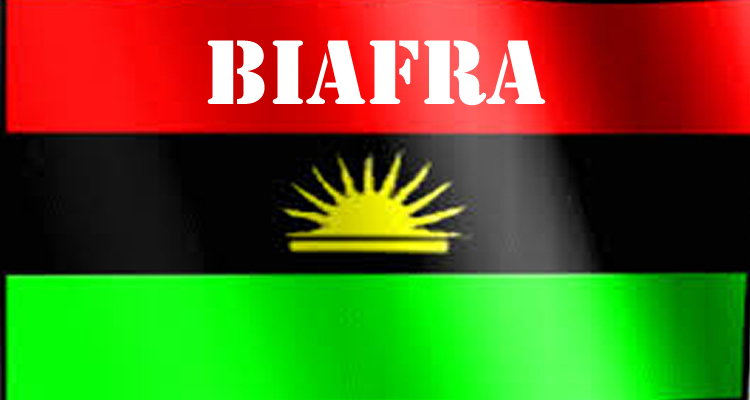By Tochukwu Ezukanma
Haunted by the systematic atrocities of war, the American Civil War hero,
General William Sherman, in a speech, shouted, “I am tired and sick of
war. Its glory is all moonshine. It is only those who have neither fired a
shot nor heard the shrieks and groans of the wounded who cry aloud for
blood, more vengeance and more desolation. War is hell.” Yes, war is
hell. War is an infernal monster that racks, devours and devastates.
Following its final gasp, Biafra died in January 1970. And all over the
erstwhile Biafra the pains, sorrow and ravages of war were palpably
evident. A proud and resourceful people broken by the horrors of war
tottered out of the last hold-outs of Biafra, with their future hinging
precariously on the whims of Yakubu Gowon. Hundreds of thousands of
youthful and able bodied men, the cream and promise of their people, were
no more; their skeletal remains strewn around battlefields and makeshift
graves. More than one million civilians had died from starvation and other
afflictions of war. Many once lusty, ebullient and confident young men
were reduced to wobbly and feeble public wards by the crippling and
disfiguring injuries of war. The unyielding lament of inconsolable mothers
and widows were depressingly earsplitting. Igbo land lay completely
exhausted and totally powerless at the feet of a battle-hardened army
giddy with victory.
Unfortunately, lately, starry-eyed, impressionable and excitable Igbo
youths, led by charlatans and cranks, have been agitating for Biafra. The
country has already fought a gruesome war against secession, and the
Nigerian constitution is unequivocal in its stance against it. And to the
generality of Nigerians, it is an anathema and the talk about it is
sacrilege. So, secession demands the defiance of the collective will of
Nigerians and trampling of the Nigerian constitution. It is unlikely that
these can be done peacefully; it must involve war. Although I did not fire
a shot or hear the cry of the wounded in battle, I vividly remember the
horrors of war. For example, in early 1968, the Nigeria Air Force, with
its Soviet-made MIG fighter-bombers, attacked Aba. After their bombing and
strafing of the city, the people of the city erupted into something of a
collective wailing because so many people, mostly civilians, laid death.
Among the dead was a successful medical doctor, Dr. Onyejiaka. Years
later, at Ngwa High School (located outside of Aba), a somewhat withdrawn
junior student with a grave demeanor and an aura of innocence caught my
attention. He was the son of the late doctor. He must have been about
seven years old when the war rendered him fatherless.
In my neighborhood at Orlu lived a widow. One day, Biafran soldiers
arrived at her house bearing a crude coffin. It contained the remains of
her army officer son killed in battle. She stood before the opened casket
of her fallen son. Overwhelmed by grief, she ranted hysterically: my son,
my hero, farewell; when you get there, greet your father; when you get
there, greet your sister that was killed by a bomb at Aba; etc. I was
bowled over. Unable to repress my emotions, I wept. The soldiers, hardened
by the repulsion and revulsion of war, betrayed no emotion. After a
perfunctory ceremony that included attentions and salutes and a number of
gun shots into the air, they disappeared with the coffin. Such grim scenes
and their attendant jolting and irretrievably shattering of the lives of
parent(s) were replicated tens of thousands of times in Biafra. The
remains of army officers were retrieved and buried but those of the other
ranks were left where they fell. I did not grow up in my village. As such,
I have a very limited knowledge of people in my village. But I am still
profoundly troubled by the excessive number of the dead from amongst the
people I know in my village. So many cousins, uncles and neighbors,
sometimes the family’s only son, and sometimes, two sons of the same
parents, were snuffed out by the war. War decimates a people, especially,
the youth. It eviscerates a people; strips them of virility, vigor and
vitality.
The leaders of the neo-Biafran movements and their supporters are young
men and women, mostly, born after the civil war. They are crying “aloud
for blood, more vengeance and more desolation” because they have
“neither fired a shot nor heard the shrieks and groans of the wounded”
and also, have neither seen nor lived through the terror and misery of
war. Thus, they cannot, by any stretch of the imagination, imagine what
war is. Before the start of the civil war, the peoples of Eastern Region
of Nigeria, mesmerized by Ojukwu’s oratory and histrionics, and
completely unable to imagine the specifics of war, romanticized war.
Similarly, pro-Biafran activists, in their total incapability to envisage
the realities of war, are romanticizing war.
But there is absolutely nothing romantic or alluring about war. In the
words of Martin Luther, “War is the greatest plague that can afflict
mankind. Any scourge is preferable to it”. This worst of all plagues has
afflicted the Igbo once, and as a people, we must forestall another
affliction of this plague. Thus far, Igbo leaders have been ambivalent of
neo-Biafran activism. They have not demonstrated courage and resolve in
addressing the issue. The Igbo leadership should squarely address the
issue. It should demand that pro-Biafra activists snap out of their
delusion, and channel their youth, talents and creativity to more
constructive ends. For Biafra is dead. The thought of its resurrection is
fantastic absurdity, and the attempt at its resurrection is criminal
lunacy.
Tochukwu Ezukanma writes from Lagos.
maciln18@yahoo.com
0803 529 2908



